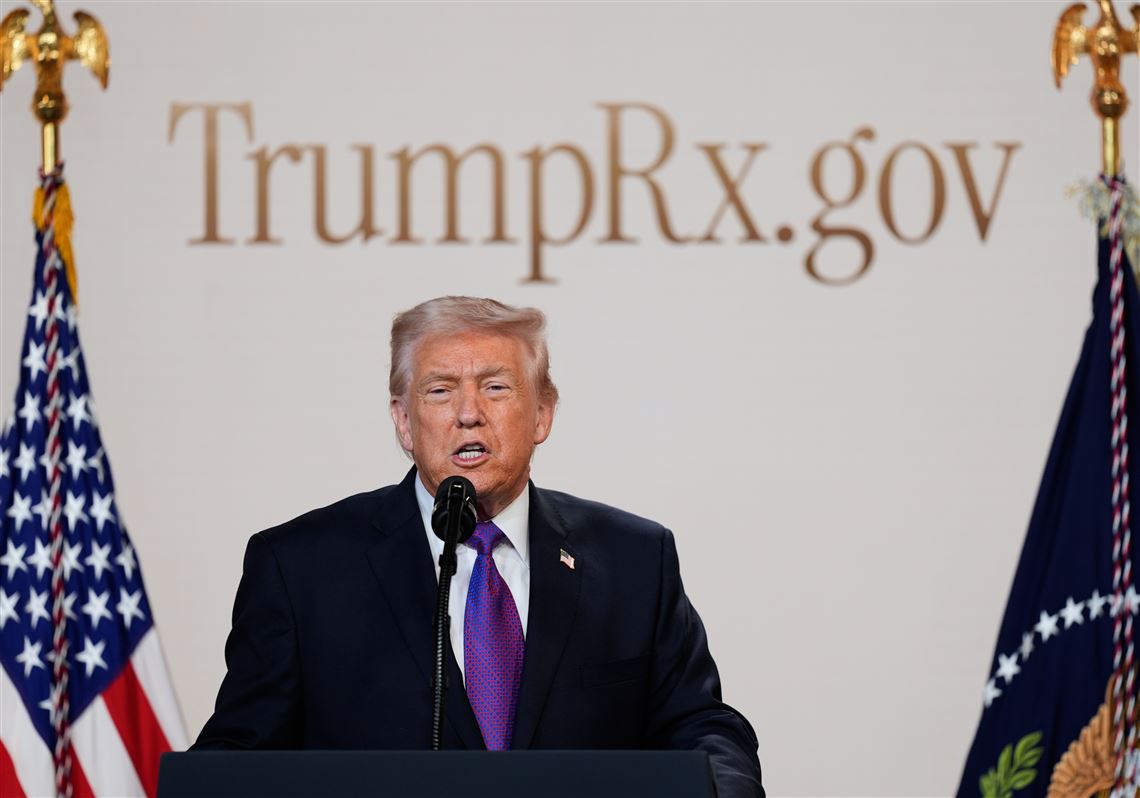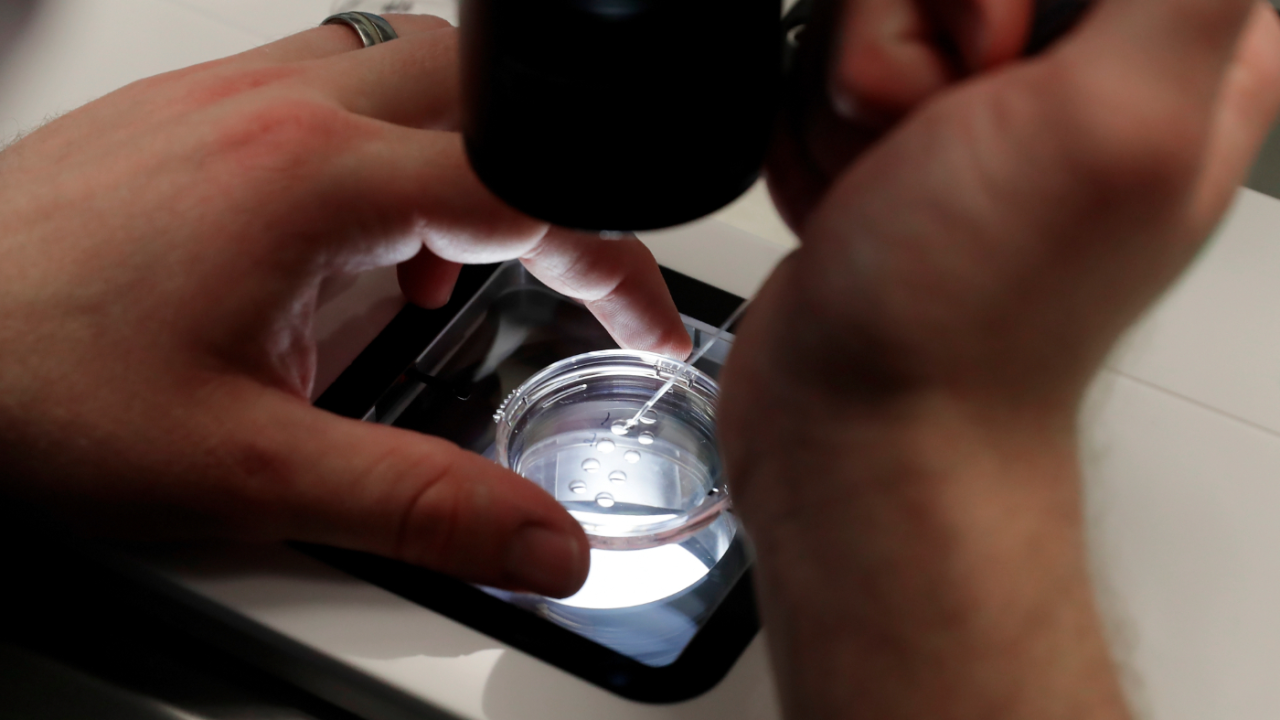Source: Notus
The administration is reviewing recommendations on how to expand in vitro fertilization access, but has yet to make these public. IVF adviser Kaylen Silverberg says it’s considering a range of options.
The Domestic Policy Council delivered recommendations Monday to the White House on how to increase access to in vitro fertilization. What those recommendations are — and how President Donald Trump, the self-proclaimed “fertilization president,” plans to implement them — is still a mystery.
White House officials are considering a host of options, according to Kaylen Silverberg, chair of Americans for IVF’s advisory board and an adviser to the Domestic Policy Council. In recent months, Silverberg has spoken with Trump’s chief of staff, Susie Wiles, DPC’s director, Vince Haley and deputy director Heidi Overton, as well as officials at the Centers for Medicare and Medicaid Services and the Department of Health and Human Services.
“They were very interested in so many different things,” Silverberg told NOTUS. “I’ve been going to Washington for over 20 years and talking to congressmen and senators about multiple different issues, and I’ve just never been impressed, honestly, as much as I am about this issue, as to how focused they are on trying to fix a problem.”
The administration is looking at, among other things, declaring IVF an “essential health benefit” under the Affordable Care Act, offering tax credits to offset costs and even requiring private insurers to cover fertility treatments, Silverberg said.
“The Domestic Policy Council has worked closely with external stakeholder groups over the past 90 days to deliver on President Trump’s executive order to formulate a plan on expanding IVF access for American families,” said White House spokesperson Kush Desai. “This is a key priority for President Trump, and the Domestic Policy Council has completed its recommendations.”
White House officials did not elaborate on what those recommendations were and Silverberg said he has not yet seen the final report that was submitted to the president. But, Silverberg said, “they made it clear that they’re considering both” executive and legislative options.
To that end, lawmakers in Congress are eagerly waiting to see the recommendations to know how to best proceed.
Republican Rep. Zach Nunn and Democratic Rep. Debbie Wasserman Schultz worked with Silverberg and other fertility experts on a bipartisan bill, the HOPE with Fertility Services Act, that would require some private health insurers to cover fertility treatment costs.
The bill had broad bipartisan support in the last Congress, with 11 Democratic co-sponsors and 21 Republicans — the most GOP support for any IVF-related legislation in Congress — but it never received a vote.
This time, Nunn thinks it’ll be different. The legislation, he said, would offer a clear path to having private health plans cover patients’ IVF costs.
“This is a top priority for families. It’s a top priority for women across our district and anybody who wants to start having a family,” Nunn told NOTUS. “So not only are we in touch with the White House, we’re in touch with members in both chambers to be able to develop something that can move quickly in line with the new guidance coming out of the White House.”
“The HOPE Act gives us a pathway here to be really successful,” he continued. He added that the fact that White House officials have been meeting with IVF specialists — Silverberg in particular — is “the biggest encouragement yet.”
Both Silverberg and Nunn told NOTUS that lawmakers would introduce the bill after the White House publicly released its IVF recommendations and, more importantly, once the House was done passing the one “big, beautiful” reconciliation bill. House Speaker Mike Johnson has indicated the chamber will vote on reconciliation as early as Wednesday.
Other lawmakers who are heavily involved in IVF policy are still hesitant that Trump will actually follow through on his campaign promise.
“I can’t say I’m cautiously optimistic,” Wasserman Schultz said. “I’m thankful for Congressman Nunn, and you know, his interest, and we have other Republicans that certainly put their names where their mouth is, but we got to have the leadership move these bills when they get introduced.”
As part of the Trump administration’s massive restructuring of the Department of Health and Human Services, the Centers for Disease Control and Prevention’s Assisted Reproductive Technology Surveillance team — a group of researchers in charge of tracking the safety, cost and efficacy of U.S. fertility clinics — was recently gutted, one source familiar with the development confirmed to NOTUS.
The researchers were placed on administrative leave for two months, “after which they’ll be separated from the government,” the source said.
An HHS spokesperson told NOTUS that “critical programs under the CDC’s Division of Reproductive Health will continue under the Administration for a Healthy America alongside multiple agencies and programs to improve coordination of health resources for Americans.” (The spokesperson did not clarify whether the ART Surveillance team was considered a “critical” program.)
“Talk is cheap. I mean, I’m a show-me person, not a tell-me person,” Wasserman Schultz said. “You can see in the administration’s actions that they really don’t have an interest in backing up making it easier and more possible for people to start their families when there are barriers.”
It’s possible that the White House’s recommendation could touch on this issue. Silverberg said Haley, the director of the Domestic Policy Council, brought up the work that the CDC ART Surveillance team was doing, specifically asking about the Fertility Clinic Success Rate and Certification Act of 1992, which created the ART Surveillance team to report and track fertility treatments in the U.S.
“He knew so much about it. And he knew the machinations of it, he knew how it worked, he knew the flaws in it. He knew, you know, that it could be improved. And he was very interested in my thoughts about how I would improve it, what I would do differently,” Silverberg said.
Even in the face of some doubts from the administration, some lawmakers suggested that these are the cards they’ve been dealt, so they need to figure out a way to work with the circumstances.
“I’m concerned about those things, but the president has expressed his interest in supporting IVF and supporting access to this technology,” Democratic Rep. Laura Gillen said at a press conference. She introduced a bipartisan bill on access to fertility treatments with Republican Rep. Mike Lawler.
Silverberg was optimistic there would be action on IVF, and soon.
“I also think that they made it clear that this is not the end of this debate,” Silverberg said. “I got the very strong impression that this is the end of the beginning of the conversation, not the end of the conversation.”






